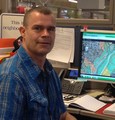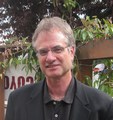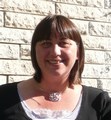“To protect watershed health, understand the watershed as a Whole System,” says Dr. Richard Horner, University of Washington (Seattle)

In the mid-1990s, the pioneer work of Dr. Richard Horner and Dr. Chris May resulted in a hydrology-based framework for protecting watershed health. “So many studies manipulate a single variable out of context with the whole and its many additional variables,” states Dr. Richard Horner. “We, on the other hand, investigated whole systems in place, tying together measures of the landscape, stream habitat, and aquatic life.”










